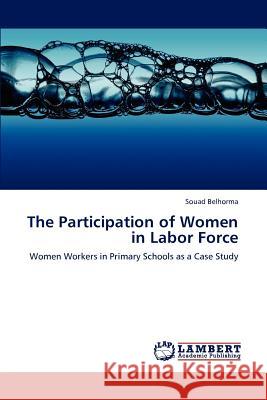The Participation of Women in Labor Force » książka
The Participation of Women in Labor Force
ISBN-13: 9783659191442 / Angielski / Miękka / 2012 / 120 str.
As a transitioning society in the developing world, Morocco has made significant changes to achieve equality between sexes in labor market. This book, therefore, discusses women's work and documents their efforts to trespass the private sphere to the public one. However, they are faced with gender based discrimination and stark inequalities impeding their true socio-economic development. Based on a field work, this book suggests that there are four generalizations which can be made about women's participation in labor force, especially among women in primary schools in Fez. First, there are various reasons behind their engagement in labor market as a traditionally male dominated sphere. Second, many women suffer from unequal gender division of labor. Third, women's participation in labor market has not changed their traditional gender roles. Fourth, women face different gender based disparities: occupational segregation, unequal pay, gender division of labor, to name but a few. The analysis should be useful to researchers, professionals, policymakers and anyone else who may be considering dealing with gender issues in relation to labor force
As a transitioning society in the developing world, Morocco has made significant changes to achieve equality between sexes in labor market. This book, therefore, discusses womens work and documents their efforts to trespass the private sphere to the public one. However, they are faced with gender based discrimination and stark inequalities impeding their true socio-economic development. Based on a field work, this book suggests that there are four generalizations which can be made about womens participation in labor force, especially among women in primary schools in Fez. First, there are various reasons behind their engagement in labor market as a traditionally male dominated sphere. Second, many women suffer from unequal gender division of labor. Third, womens participation in labor market has not changed their traditional gender roles. Fourth, women face different gender based disparities: occupational segregation, unequal pay, gender division of labor, to name but a few. The analysis should be useful to researchers,professionals, policymakers and anyone else who may be considering dealing with gender issues in relation to labor force.











